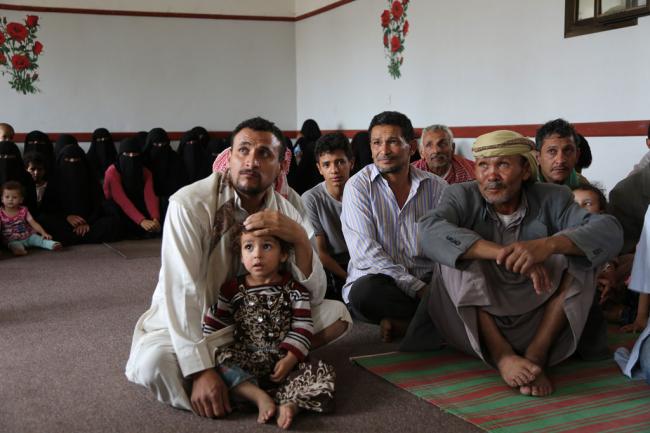
UN aid chief spotlights need to bridge humanitarian-development divides
“By adopting this shift, we can not only deliver better results for people affected by crisis, but also broaden the development gains for millions of the ‘furthest behind’ so they can chart their own course out of aid-dependency,” the Under-Secretary-General for Humanitarian Affairs and Emergency Relief Coordinator, Stephen O’Brien, said at a panel discussion during the Economic and Social Council’s Humanitarian Affairs Segment from 27 to 29 June.
The annual ECOSOC Humanitarian Affairs Segment provides a platform for Member States, UN entities, humanitarian and development partners, the private sector and affected communities to discuss emerging and pressing humanitarian issues, as well as activities and issues related to strengthening the coordination of the UN’s humanitarian assistance.
In his remarks, O’Brien noted that the international community must undertake a new way of working and financing that promotes “not just surviving, but also thriving.”
“We in the UN are the first to recognize that we cannot continue business as usual,” he said, adding that the commitment to action on transcending humanitarian-development divides, signed by eight UN agencies at the Summit, shows the willingness of all involved to work to collective outcomes.
In addition, international non-governmental organizations (NGOs) and NGO networks made significant commitments to advance this new way of working, he said.
He also cited the Organisation for Economic Co-operation and Development (OECD), which, through its iinternational network on conflict and fragility, committed to strengthening the humanitarian-development nexus. Its financial and political support will focus on five to 10 countries initially but will be progressively expanded by 2020.
O’Brien went on to highlight a need to look beyond short-term, sector-based projects. The response to the current El Niño crisis in Ethiopia and beyond is a phenomenal example of how the authorities there, supported by humanitarian and development partners, have been able to avert an even deeper crisis by reducing risk and improve resilience, he noted.
Given most crises are protracted or recurrent, stakeholders must work over multi-year time frames, identifying the kinds of results they want to achieve over three to five years, or longer, he said. In the Sahel, resident and humanitarian coordinators are working together to implement a multi-year regional response plan, while addressing how to integrate risk into development assistance.
Lastly, the UN official said, it is vital to take each entity’s strengths and comparative advantages into account, rather than institutional mandates, in order to determine which is best-placed to get the job done.
However, there will always be situations, in which moving national development indicators forward will be extremely difficult, as seen in Syria, Yemen, and other active conflict zones, where humanitarian action primarily will be about securing access to move life-saving assistance to people in dire and urgent need, he noted, while adding that there are also many other situations where closer collaboration toward common objectives and results is needed.
“We face a once-in-a-generation opportunity,” he said. “The 2030 Agenda[for Sustainable Development], the Sendai Framework [for Disaster Risk Reduction], the Paris Agreement under the United Nations Framework Convention on Climate Change are among the most prominent signals of the momentum that is building on this front.”
Titled “Moving beyond business as usual: Working together to reduce need, risk and vulnerability,” the panel discussion also featured speakers, including David Nabarro, Adviser to the Secretary-General on the 2030 Agenda for Sustainable Development, and Amir Mahmoud Abdulla, Deputy Executive Director of the World Food Programme (WFP).
Photo: OCHA/Charlotte Cans
Source: www.justearthnews.com
Support Our Journalism
We cannot do without you.. your contribution supports unbiased journalism
IBNS is not driven by any ism- not wokeism, not racism, not skewed secularism, not hyper right-wing or left liberal ideals, nor by any hardline religious beliefs or hyper nationalism. We want to serve you good old objective news, as they are. We do not judge or preach. We let people decide for themselves. We only try to present factual and well-sourced news.







